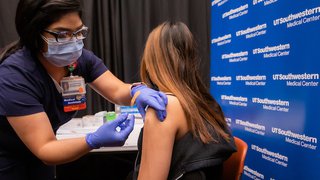COVID-19 and substance abuse: How to HALT stress drinking, drug use
April 15, 2020

In the U.S., social media posts pop up daily from sheltered-in-place people bemoaning weight gain during the COVID-19 pandemic. Can't stop snacking on cookies! #sendhelp. Others joke about packing on extra pounds during the pandemic, calling their weight gain “the COVID 19.”
But a more sinister risk has also emerged amid our collective isolation, and it could have deeper consequences: bingeing on alcohol or other substances to cope with the stress.
In late March, Newsweek reported that alcohol sales had spiked 55%. Compared with the same dates in 2019, hard liquor sales increased 75%, beer 66% and wine 42%.
Some of this uptick likely correlates with the closing of bars, clubs, and restaurants. Rather than enjoying happy hour out, many people are bringing the party home. People are stashing alcohol or other vices the same way some have stockpiled toilet paper, hand sanitizer, and even baby chickens.
But there's no last call when you are your own bartender. And for those who were already struggling with moderation or addiction, the urge to imbibe can magnify during this open-ended period of physical isolation.
Smoking, opioid use, and COVID-19
People who smoke, vape, use opioids, or use methamphetamine may be at increased risk of respiratory complications due to COVID-19. Chronic opioid use, smoking, and inhaling substances damage the lungs. We know that people with compromised lungs fare worse with COVID-19, which can cause sudden breathing issues.
During a pandemic, people react to stress differently. Even those who seem fine are coping with physical isolation, working at home, lost income, or trying to homeschool their kids.
Though COVID-19 has caused trauma and suffering, a silver lining is that we've had to fast-track much needed changes in the mental health field. For the first time, more emotional and substance use support is available through virtual visits (telemedicine), either by phone or video appointment. And modernized medication restrictions may improve adherence and outcomes after the pandemic ends.
Supportive care is available. And access begins with acknowledging the problem.
If you find yourself having more to drink than normal or switching to harder substances to take the edge off, HALT and ask yourself: "Am I actually Hungry, Angry, Lonely, or Tired?" Sometimes simply acknowledging that emotion can help you figure out what you truly need.
Adriane dela Cruz, M.D., Ph.D.
How do I know if I have a drug or drinking problem?
We're all desperate for our normal routine. But if you find yourself having more to drink than normal or switching to harder substances to take the edge off, HALT and ask yourself:
"Do I really want that? Or am I actually Hungry, Angry, Lonely, or Tired?"
Sometimes simply acknowledging that emotion can help you figure out what you truly need. Then you can choose a healthier option, such as a quick burst of exercise or reaching out to a friend to blow off steam.
During the pandemic, you might be inclined to revert to past patterns, such as smoking or drinking too much. People with existing mental health conditions are on an even slipperier slope due to worsening of symptoms, higher addiction risks, and medication interactions.
Related reading: COVID-19 distress: Managing your mental health in a pandemic
How to support others right now
Most people have never experienced a situation quite like this pandemic. We're all trying to find structure amid the stress and anxiety.
Physical isolation may trigger increased alcohol use or the potential for a drug overdose. During the pandemic, when many of us are sheltering in place, it is less likely someone will observe an overdose and be there to call for lifesaving measures.
These are troubling possibilities to consider. But we can all reach out, be kind, and support one another. Consider these suggestions when talking with a friend facing substance use issues.
1. Acknowledge their feelings
Everyone handles stress in their own way. For example, some of our patients who've made major strides in overcoming childhood trauma and anxiety have noticed a resurfacing of symptoms due to pandemic-related stress.

As a support person, don't dismiss their feelings or minimize their concerns. Anxiety can cause irrational worrying, which can cripple a person socially, professionally, nutritionally, and in other aspects of wellness.
2. Offer to talk, video chat, or text
Just letting someone with substance use issues know they can reach out to you any time, sans judgment, can help alleviate their anxiety. Even introverts need some level of social interaction.
COVID-19 may make it difficult to be together in person, so ask if you can video chat or talk on the phone. Texting is great, too. Just remember that it's tough to gauge intent and mood through text only.
Related reading: Quarantine cuisine: Easy meals to support a healthy immune system
3. Talk about behavior changes
If a loved one who is usually outgoing seems suddenly withdrawn, let them know – kindly – that you've noticed and offer to talk about it. Or if a friend is getting angry more often, broach the subject with compassion. You can even ask if they've noticed this behavior themselves.
If you observe ramped up or new patterns of substance use, it might be an uncomfortable subject to bring up, but you are justified in doing so. Be kind and firm. If they don't want to talk, don't force the conversation. You are not responsible for their behavior, and you can't make them change if they are not willing. But continue to reach out. They need to know you will be there when they're ready.
Please note: If you notice erratic behavior, such as unusual texts, phone calls, or social media posts, reach out to them or one of their loved ones. This can be a sign of increasing anxiety, depression, and concurrent substance use. Mental health support is available, and in many cases more easily accessible thanks to the expansion of virtual visits.
Related reading: What you should know about the novel coronavirus
How the pandemic is changing the future of mental health care
Rapid conversion to telemedicine
In 2019, 38% of U.S. healthcare CEOs had no plan to incorporate digital platforms and remote care into their strategies. Just four months into 2020, the COVID-19 pandemic fast-tracked the virtual visits landscape. Congress has lifted restrictions on telehealth coverage under Medicare, and many institutions are quickly delivering more care remotely.

At UT Southwestern, 100% of UT Southwestern patients who need substance use disorder (SUD) treatment and psychological care can be treated through virtual visits. We meet with patients through secure apps, phone-based systems, and electronic medical records (EMR) platforms such as MyChart. For patients and providers, this is a fast, effective, and positive change.
Loosened restrictions on methadone access
Methadone and buprenorphine are two controlled medications that can help patients wean off heroin and other opioids. The medications provide a low dose of opioid to suppress cravings and relapse to dangerous, illicit opioid (heroin, fentanyl) use. These medications are highly effective and have been consistently shown to reduce overdose deaths.
For approximately 40 years, the only way patients could get prescriptions for these medications was to see a physician in the clinic. To obtain methadone, they'd have to visit a federally regulated methadone clinic every day for a year or longer and pick up just 24 hours' worth of the drug at a time. This measure was in place to reduce the risk of overdosing on the medications intended to help patients beat addiction.
COVID-19 physical distancing recommendations led the Substance Abuse Mental Health Services Administration (SAMHSA) to temporarily loosen these restrictions. For now, patients can receive a buprenorphine prescription through telemedicine. Additionally, patients with stable conditions may visit a methadone treatment program just once every two weeks and get up to 14 days' worth of medication at a time.
As this new era in opioid addiction treatment unfolds, SAMHSA and other federal organizations will monitor how patients and providers handle the switch. We are hopeful these changes result in lasting, positive change.
Support groups go virtual
Physical distancing measures are critical to flattening the COVID-19 curve. Group support is key in achieving and maintaining sobriety, offering a safe zone where people can openly share with others who have been there.
So, many local and national groups have upped their online presence to reach more people – a move that could, over time, increase participation long after the pandemic ends.
Alcoholics Anonymous, Smart Recovery, and Narcotics Anonymous are leading the charge, hosting virtual meetups. We're also seeing more challenge-based virtual support groups gain traction, such as One Year No Beer.
Going virtual is a much-needed step considering that addiction, as well as other mental health conditions, still carries a stigma. Some patients shy away from support groups because they don't want to feel marginalized or vulnerable.
Research shows that attending 12-step style support groups increases sobriety rates. Some research suggests regularly attending AA meetings, for example, can lead to higher rates of alcohol abstinence over months and years.
Joining online allows for anonymity, as well as easier access when travel is difficult. You can find virtual Narcotics Anonymous meetings online, as well as virtual AA meetings. If you don’t see a local listing on these sites, try a Google search or reach out to your local public health department for guidance.
Today and always, control the controllables
Like everyone, doctors – including psychiatrists – are working hard to maintain our own emotional wellness. In chats with friends and colleagues, one consistent theme keeps popping up: "control the controllables" – a positive mantra for all of us during this tough time.
Many people expend a lot of time and energy fretting about things individuals can't control, such as others' behaviors, the spread of the virus, being laid off. Next time anxious feelings creep in, pause and consider what you can control: observing shelter-in-place regulations, modeling appropriate handwashing techniques for your family, and expressing gratitude.
The irony of this pandemic is that, for all the distancing measures, the underlying pulse is that we must pull together virtually to encourage and support one another.
Reach out. Connect. Help those who might be struggling with substance use get the support they need. We're all in this together. And together, we can come out strong, stable, and healthier on the other side.
To schedule a virtual mental health care appointment, call 214-645-8300 or request an appointment online.












